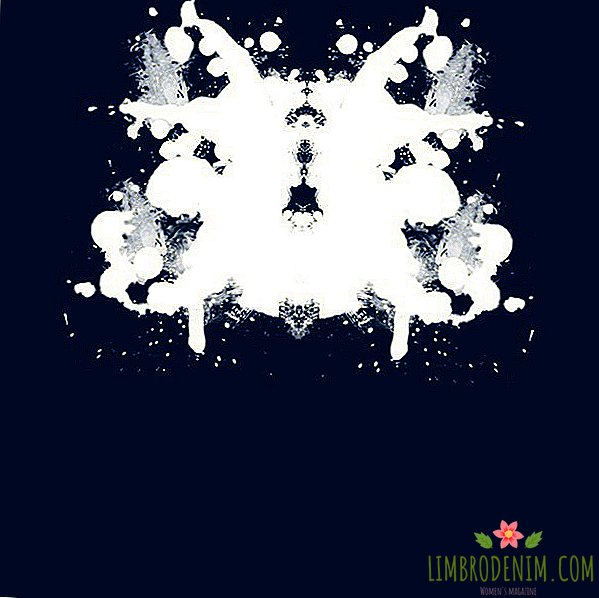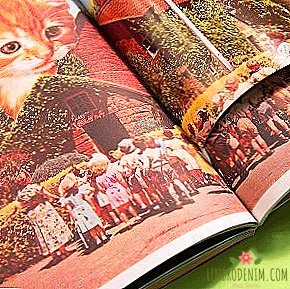Art historian Maria Semendeyaev about favorite books
IN BACKGROUND "BOOK SHELF" we ask journalists, writers, scholars, curators, and anyone else not about their literary preferences and publications, which occupy an important place in their bookcase. Today our guest is art historian Maria Semenyaeva.

Mom taught me to read in kindergarten, and then I read everything that was at home on the bookshelf, mostly collected works. Grandma instilled in me a love for great art albums and dictionaries. I read a lot in my teens and at university. I sat with a book at breakfast, lunch and dinner, did not leave the house without a book in a backpack, and my favorite activity was to read before bedtime.
I can’t name one favorite book. I loved the Strugatskys and Tolkien very much, then I turned to Max Fry and all the popular fiction writers, whose names I don’t even remember. An important writer for me as a teenager is Alexei Tolstoy, "Going on a Charge" and "Peter the Great." In addition, I re-read the "White Guard" several times, and my guilty pleasure was Julian Semyonov.
The first book that impressed me a lot was the large edition of Russian Icon Painting from the Source to the Beginning of the 16th Century. I considered it when I was about five years old, probably. I really liked the life icons of the Novgorod school, and I was frightened by the icons with the crucifix and turned the pages. One day, apparently deciding to overcome my fear, I began to play Jesus Christ and walked around the room until no one sees it, imagining that they were leading me to execution. Then I had very scary dreams. However, this strong experience obviously imprinted on life, therefore, when I entered the history of art at Moscow State University, the Old Russian and Byzantine art was like relatives to me.
Perhaps the best thing about my current status as a former book lover may be the fact that I do not have a reader. I still think to buy, but somehow not enough. I read on the plane, on the train, if I have to go far. I once read Salman Rushdie's Farewell Sigh of the Moor on the Novorossiysk-Moscow train. In old age I will only read fiction, if I live.

I really liked the life icons of the Novgorod school, and I was frightened by the icons with the crucifix and turned the pages

I cannot call myself a connoisseur of someone’s specific language, I have always been more important than narrative. I can say that I like a simple and clear way of presenting thoughts. Like Limonov, for example. I read it thanks to a friend who just gave me a book and said: "Read." But I have no favorite literary language. I remember how disappointed I was with Gabriel Garcia Marquez’s book “One Hundred Years of Solitude”, and could not finish it. I also do not understand the popularity of Boris Vian and John Fowles. It seems to me that we simply do not know some good writers, because they were not in the Soviet course of literature.
If we talk about the advice about the books that must be read, then I always listen to the advice of Pasha the Terrible, my former colleague in the "Poster" - what Pasha advises, you must read. In general, I do not read much, of course, it is necessary to read much more. Some monographs come across, in the catalogs for exhibitions there are good articles. Basically, I'm reading the press right now.
For the reason that all my favorite books remained with the parents in the old apartment, and they now buy a new one and brought all the things to the warehouse, I had to choose the books that I now have at home. I have a very small library, because it seems to me absurd to carry bales of paper in rented apartments. But some books still keep. Favorite books that I don’t have in my hands right now are Evelyn Vo's The Unforgettable and Thornton Wilder's Ides of March.
I rarely specifically buy books, I used to do it more willingly. A special holiday at the time of the university was a trip to the book fair for inexpensive albums on art. Now, frankly, the toad is strangling me to buy books, I am waiting for them to digitize everything or think of some way to reduce the cost of production and simplify the work with paper carriers. In the rented apartment, I now have a small bedside table full of books. For some reason, there is a book by Giorgio Vasari, and also Sheckley, which I inherited from the commune where I lived for three years, and Shakespeare with comments, a gift from a friend. I do not have a library, but I do not rule out that it will ever come together from such strange gifts and spontaneous acquisitions.

"Peter the First"
Alexey Tolstoy
I read this book for the first time in childhood during my illness, and it fascinated me so much that I had already reread it several times from different chapters. Most of all I liked the description of life, as well as the clash of different characters, about each of which you already know a lot and for whom you are equally worried. This particular book is from the collected works, which is now waiting for moving to a new apartment. It seems to me that her mother actively read her as a child, therefore she was intertwined again. Most of all I like to reread the very beginning - about the life of the Brovkin peasants, and then about the matchmaking of Vasily Volkov and about their journey to Europe. In fact, I so often re-read the book that I open it on any page and immediately recall the plot.

"Rehearsal is my love"
Anatoly Efros
There was a short period in my life when I was going to enter the theater. I very quickly realized that there was no director in me, and even less acting, but I could read books about the theater in batches. One of them is the famous book of Efros, where he talks about the characters of the heroes of famous plays and examines the psychology of the play. After reading this book, I began to go to the theater in a completely different way. Still, taking action emotionally is one thing, and analyzing is another. Great directors combine this. I can only analyze, and this is very exciting.

"Russian art of the XVIII - early XX century"
Mikhail Allenov
Mikhail Mikhailovich Allenov gave us a course at the university, which actually coincides with this book. I remember when I was preparing for it in 2007, it seemed to me that everything is so simple and understandable there, like a synopsis. Opened it here recently and could not even read the chapter. It is known that art critics love their special words. Mikhail Mikhailovich is extremely serious about word formation. In general, this is a brilliant book that you should try to read while you are young and your mind is alive. Then it will be too late.

"Stories"
Woody Allen
I really don't like Woody Allen movies. I can not watch them, I'm bored. But the stories are awesome. The coolest - "Whore of the spirit." I once cropped this book from Sasha Shirvindt. If suddenly she reads, she is ready to give! It's amazing how the book has overcome with me for five years, if not more. Probably need to re-read again.

"Renaissance and Baroque"
Heinrich Wolflin
One of the textbook art history books. At the beginning of the 20th century, everyone was very keen on the analysis of cultural monuments, and Wölflin was the founder of this method. In this book, he explains how insane baroque eddies arise from the balanced, rational art of the Renaissance. It seems that I bought this book after university, when I was bored with scientific texts. If you are interested in the history of art, Wöllflin, of course, must be read, because it gives a basic idea of how to study the monuments. However, this is only one of the methods, and the book is about a hundred years old. Still worth knowing that Wolflin wrote this work in 24 years.

"Collection"
Abulkasim Firdousi
I found this book in the old library in the children's camp in Yeisk. We were there with an expedition of ethnologists, and on the last evening the camp director let us see the library. She was in a terrible state, the book almost rotted. I took this book with me, and then she traveled with me on a trip to Tajikistan, Uzbekistan and Kazakhstan. At the exit of Tajikistan to Uzbekistan was just a brutal customs. My friend was forced to declare 10 pairs of wool socks, which she carried as a gift, and my book was considered for a long time, suspecting that I had stolen it from the library in Dushanbe. In the end, they let me go, although, to be honest, I accepted the fact that she would have to leave her. My favorite story is about the beloved Zola and Rudoba, who marry after some confusion and numerous offenses of their relatives against each other. At the same time, a wonderful translation conveys subtle nuances of moods, and Ferdowsi periodically subtly stebet his characters. “Rudoba alone is desirable for him, everything else is unclear and foggy,” the guy was immediately capricious.

"Ten Books on Architecture"
Vitruvius
I seem to have bought the book in the 1st Humanitarian Corps course on the second, when we were passing Rome, and just read it out. Vitruvius gives advice on which way to lay the roads, depending on the goals you set for yourself, to the ratio of the height of the column base to the column itself. I am more than confident that for many decades no one has bothered so much, there are measuring devices, computer programs that everyone considers themselves. Vitruvius did everything literally with his own hands. This can not but admire. In addition, I felt a special love for him after learning that he was a contemporary of Caesar and Augustus. This is my favorite period in Roman history, which I learned from Thornton Wilder’s book The Ides of March.

"Night in Lisbon"
Erich Maria Remarque
I really liked Spark of Life as a child. "Three Comrades" somehow did not go. Then I was delighted with the "Promised Land". “I read the night in Lisbon” at the university, and I liked that it was so adventurous, there were some kind of chases, detective turns. In general, of course, Remarque is a rather boring writer, but Salinger is better at least.

"Kazan patterned leather"
LILY SATTAROVA
This book was published by my grandmother Lyudmila Borisovna Sklyar (Martynova). I love her very much and, over the years, I respect her more and more, because she is an excellent editor and a person with incredible taste. This book was published jointly with the Ministry of Culture of Tatarstan, and there were a number of problems that accompanied its publication, but still this is the most current book about the Kazan technique of creating patterned boots. These boots were worn by Isadora Duncan and members of the royal family, in these boots was the youth Bartholomew in the picture of Nesterov, it was quite a popular shoe at the beginning of the 20th century. What is surprising, ichigi or slippers do so far, it is a living art. I keep this book as a memory of that trip to Kazan, when my grandmother and I went to the author of the book and I was looking at albums on Islamic art at her home.

"Macbeth. Hamlet"
William Shakespeare
A very good edition with a parallel English-Russian text, I will not lie, I didn’t really read it, but I am glad that I have this book. Makes me feel not the most recent person. It was presented to me by Dima Oparin, my very close friend, apparently, hinted that it was time to re-read the classics. I will re-read it, I swear. In general, I like to watch different modern English versions of "Hamlet", and my favorite "Macbeth" - in the English-Russian cartoon.






